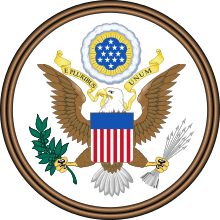Self
The self is the subject of one's own experience of phenomena: perception, emotions, thoughts. In phenomenology, it is conceived as what experiences, and there isn't any experiencing without an experiencer, the self. The self is therefore an "immediate given", an intrinsic dimension of the fact of experiencing phenomena. In some other trends of philosophy, the self is instead seen as requiring a reflexive perception of oneself, the individual person, meaning the self in such a view is an object of consciousness.
The self has been studied extensively by philosophers and psychologists and is central to many world religions. With the recent rise in technology, the self has been discussed under various new emerging fields, such as Technoself Studies.
Philosophy
The philosophy of self seeks to describe essential qualities that constitute a person's uniqueness or essential being. There have been various approaches to defining these qualities. The self can be considered that being which is the source of consciousness, the agent responsible for an individual's thoughts and actions, or the substantial nature of a person which endures and unifies consciousness over time.

Self (programming language)
Self is an object-oriented programming language based on the concept of prototypes. Self was a dialect of Smalltalk, being dynamically typed and using just-in-time compilation (JIT) as well as the prototype-based approach to objects: it was first used as an experimental test system for language design in the 1980s and 1990s. In 2006, Self was still being developed as part of the Klein project, which was a Self virtual machine written fully in Self. The latest version is 4.5.0 released in January 2014.
Several just-in-time compilation techniques were pioneered and improved in Self research as they were required to allow a very high level object oriented language to perform at up to half the speed of optimized C. Much of the development of Self took place at Sun Microsystems, and the techniques they developed were later deployed for Java's HotSpot virtual machine.
At one point a version of Smalltalk was implemented in Self. Because it was able to use the JIT this also gave extremely good performance.
Self (band)
Self (stylized as sElf or SeLF) is an American alternative pop/rock band from Murfreesboro, Tennessee and is largely the creative vision of writer, singer, producer, and multi-instrumentalist Matt Mahaffey.
Though it is not considered a band and not a solo project, Matt Mahaffey is the primary performer of all instrumentation and vocals on studio albums. Other members have contributed occasional parts on albums and have participated in live performances. The band currently consists of Chris James (keyboards, piano, samplers, guitar, backing vocals), Mac Burrus (bass guitar, keyboards, horns, backing vocals), and Jason Rawlings (Drums). Past members include Matt's brother, Mike Mahaffey (lead guitar, keyboards, vocals) and Timm Nobles (bass guitar). Mahaffey cites Electric Light Orchestra, Prince, and Pixies as some of his biggest musical influences.
Band history
Self began with founders Matt and Mike Mahaffey recording songs in their childhood home in the early 90s, following brief forays with other groups. The band's debut album, Subliminal Plastic Motives, was released in 1995 on the Spongebath Records, a label the Mahaffeys helped found. During this early period, the band featured Matt on vocals and guitar, Mike on lead guitar, Tim Nobles on bass, Chris James on keyboards and samplers, and Jason Rawlings on drums.
NFA
NFA may refer to:

National Firearms Act
The National Firearms Act (NFA), 73rd Congress, Sess. 2, ch. 757, 48 Stat. 1236, enacted on June 26, 1934, currently codified as amended as I.R.C. ch. 53, is an Act of Congress in the United States that, in general, imposes a statutory excise tax on the manufacture and transfer of certain firearms and mandates the registration of those firearms. The Act was passed shortly after the repeal of Prohibition. The NFA is also referred to as Title II of the Federal firearms laws. The Gun Control Act of 1968 ("GCA") is Title I.
All transfers of ownership of registered NFA firearms must be done through the federal NFA registry. The NFA also requires that permanent transport of NFA firearms across state lines by the owner must be reported to the Bureau of Alcohol, Tobacco, Firearms and Explosives (ATF, or BATFE). Temporary transport of some items, most notably silencers, do not need to be reported.
Background
The impetus for the National Firearms Act of 1934 was the gangland crime of the Prohibition era, such as the St. Valentine’s Day Massacre of 1929, and the attempted assassination of President Franklin D. Roosevelt in 1933. Like the current National Firearms Act (NFA), the 1934 Act required NFA firearms to be registered and taxed. The $200 tax was quite prohibitive at the time (equivalent to $3,538 in 2016). With a few exceptions, the tax amount is unchanged.
Podcasts:

